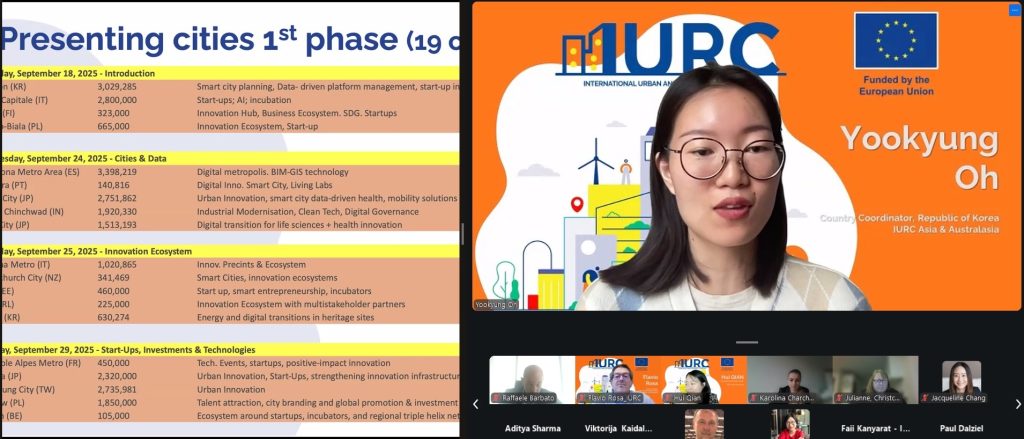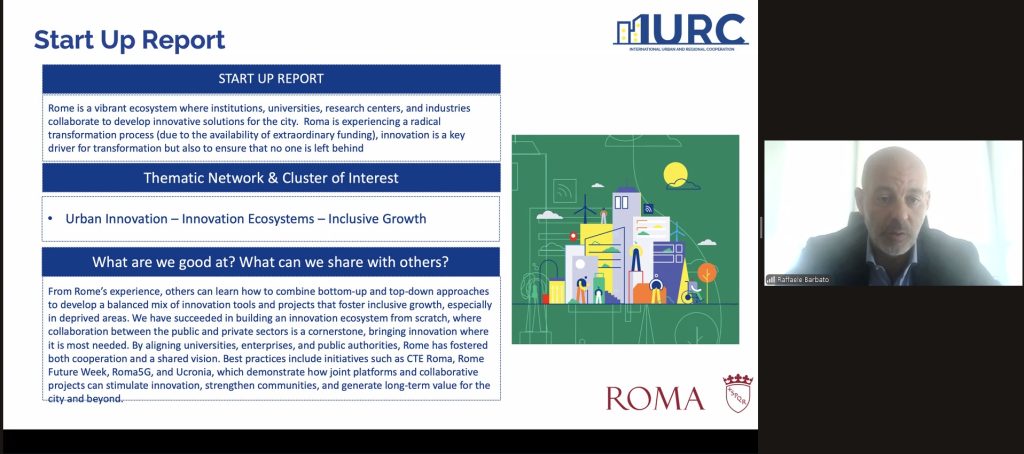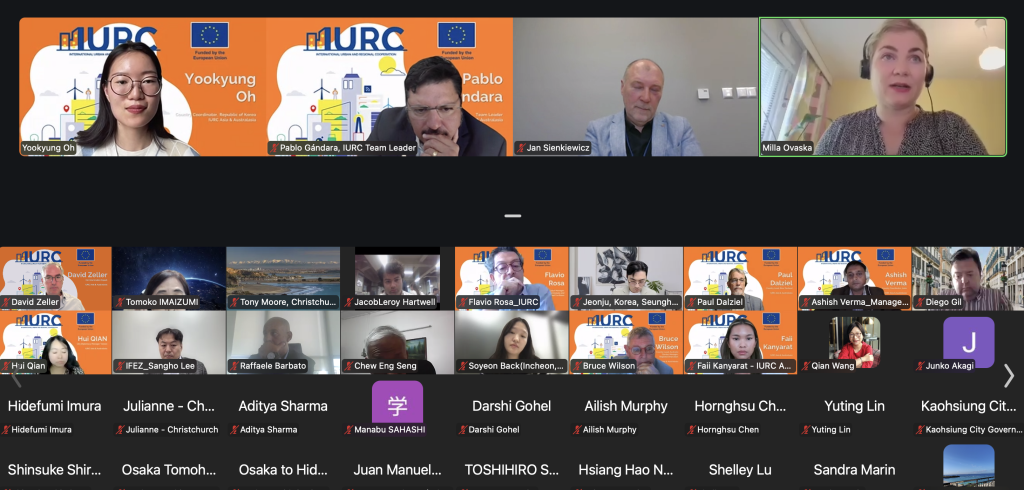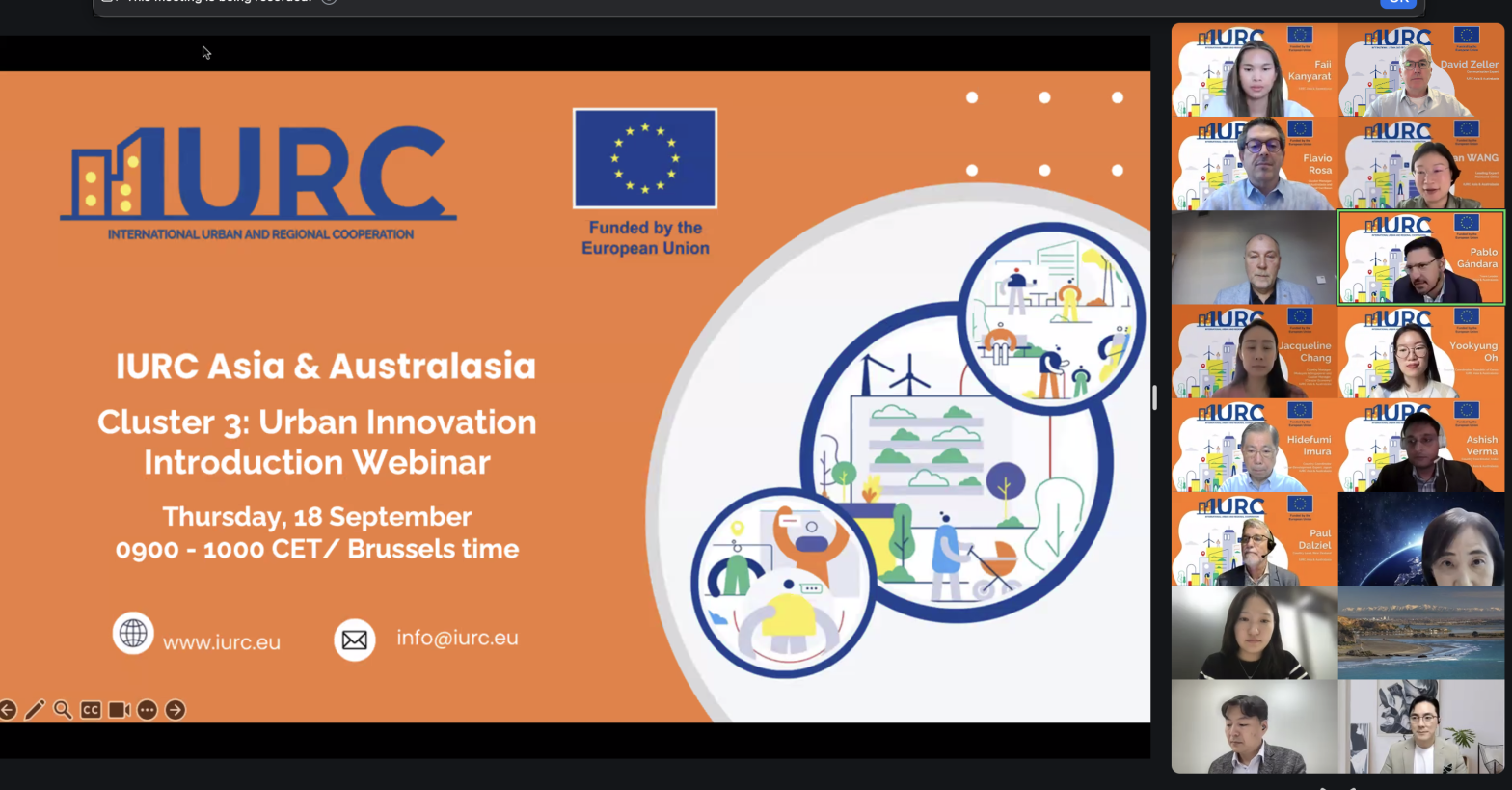The International Urban and Regional Cooperation Programme (IURC) has successfully launched its Urban Innovation Introductory Session as part of the Thematic Network Webinar Series. The online session, held on 18 September 2025, brought together more than 60 participants from Europe and Asia & Australasia for an in-depth exchange on smart cities, artificial intelligence (AI) technologies, and citizen-centric governance.

The event featured Viktorija Kaidalova from the EU’s Service for Foreign Policy Instruments (FPI), who emphasized the European Union’s commitment to supporting cities as innovation hubs and highlighted the importance of global collaboration in driving sustainable development. She was joined by Pablo Gándara, IURC Team Leader, and Yookyung Oh, Cluster Manager for Urban Innovation, who formally opened the session and guided today’s session..

City Presentations
Incheon (Republic of Korea)
Sang-ho Lee from the Incheon Free Economic Zone presented Incheon’s two-decade journey from a pioneering smart city to its current ambition of becoming a full AI city. He outlined the city’s extensive Internet of Things (IoT) infrastructure, including integrated CCTV systems linked to a central database, as well as plans to expand AI-driven public services across diverse urban management systems.

Rome (Italy)
Raffaele Barbato shared how Rome is positioning itself as an inclusive innovation hub, leveraging significant EU funding to foster collaboration between institutions, universities, research centers, and industries. Flagship projects such as CTE Roma, Roma5G, and Rome Future Week were highlighted as key initiatives that blend bottom-up citizen engagement with top-down policy approaches, ensuring sustainable and inclusive citywide growth.

Espoo (Finland)
Milla Ovaska presented Espoo’s role as Finland’s second-largest city and one of Europe’s leading innovation centers. She emphasized the city’s deep-tech ecosystem — with Espoo ranked 6th in Europe for applied patents (an especially high ranking for a city of its size) — and described how its startup ecosystem generates around 100 new companies annually. Ovaska spotlighted clusters such as Green Line and Kvanttinova, and discussed Espoo’s growing international partnerships with Japan and South Korea in areas like quantum computing and advanced technologies

Bielsko-Biała (Poland)
Jan Sienkiewicz showcased Bielsko-Biała’s transition towards renewable energy and Industry 4.0. He described how the city and its surrounding region are addressing brain drain and advancing digital transformation through initiatives such as the Beskid HUB for Digital Innovation, the creation of three new business incubators, and targeted funding to support SMEs and startups. The region’s clustering strategy aims to attract cutting-edge technologies, enhance workforce skills, and create long-term sustainable growth across Southern Poland.

Interactive Discussion
The session concluded with an interactive discussion round, where participants exchanged experiences on AI-based services, innovation precincts, and governance challenges. The dialogue underscored the importance of scaling up pilot projects, building cross-sector partnerships, and exploring opportunities for collaboration between cities in Europe, Asia, and Australasia.

Contact
For further information on the Urban Innovation Thematic Cluster, please contact Cluster Manager Ms. Yookyung Oh at yoh@iurc.eu.
